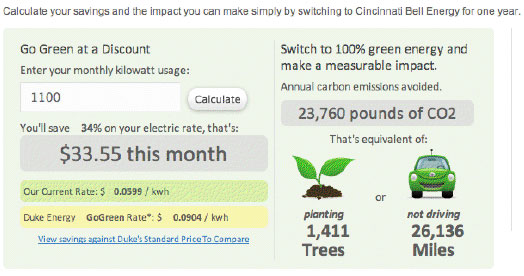Tree Huggers, Bank Notes, or Both?
Most CSPs now seem to realize that customers can be enticed to adopt e-billing as a result of both the
ability to shave a little off their bills and help out the planet in the process. A new joint, deregulated
energy offer from Cincinnati Bell and Duke Energy provides a case in point. Cost and environmental
benefits are balanced across the marketing messages as both monthly costs savings, and carbon
emission reduction are promoted together.

Whatever the current drivers for e-billing uptake, it seems inevitable given the growing influence of mobility in online services and the momentum behind all-electronic payments, that paper bills ultimately will all but disappear. “E-billing” will just be “billing”, just as the distinction “online” is being dropped from the concept of “newspaper.” With the European Commission’s aggressive simplification of e-billing regulation and its economic benefits to CSPs clearly measured, e-billing’s positive environmental impact is likely to be realized. In this case, however, it just seems fortunate that, for once, the tree-huggers’ interests are actually aligned with those of big corporate.





